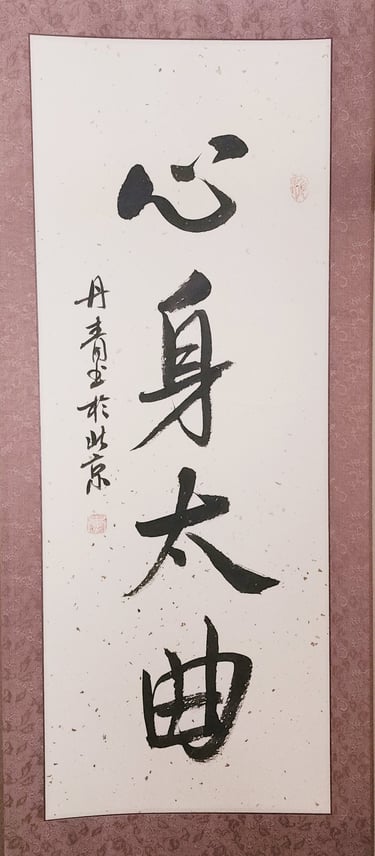Our mission
Taikyoku Budo is a framework for training in martial arts, personal development and empowerment through old and new approaches to combatives, strength, and conditioning. The objective is not to build a school or top-down hierarchical culture, but instead to empower a community of enthusiasts with tools that enable personal development, a series of basic techniques, a core set of applications, and ultimately a knowledge base of immense depth by which an individual can pursue a lifetime of exploration and improvement.
Over time, look for an iterative series of open source modules spanning the subject areas of the Taikyoku Framework. A key inspiration to this approach is Jigoro Kano’s original efforts to bring together aspects from multiple Japanese Jujutsu ryu to create an accessible means of physical education named Judo - by which players could train together for mutual benefit. As the world continues to change and evolve, additional inspirations have been drawn from the Information Age and the ability to share and communicate. Taking cues from the open source community by providing knowledge and resources for the genuine seeker to empower themselves and setting a precedent for contributing back to the knowledge base for mutual benefit.
Budd Yuhasz oversees the direction of Taikyoku Budo, a distillation of many years of training in martial arts, combat sports, classical body development techniques, and modern sports strength & conditioning. Budd began judo at the age of five in 1980 in Miami. He began wrestling in early teens, and later pursued training in aikido and karate in high school. In college he continued with karate and club wrestling. As mixed martial arts began to get wider attention, more opportunities arose to study with exponents driving advancements in this space.
After several years of independent study, Budd further focused his training on traditional Japanese arts and (what was then) the Taikyoku Aikido concepts in 2003. Since then, the latter continued to inform the core of his practice even as he’s continued to learn and train in other methodologies, which includes cross-training combat sports applications and a deep focus in traditional approaches to internal strength development since 2008 (both Chinese and Japanese influences) and formally branding Taikyoku Budo in 2014. In order to to adapt to changing priorities of family and career, Budd has focused the last several years more on martial solo training, as well as blending classical and modern approaches to strength and conditioning. The balance of these old (“Ko”) and new (“Gen”) approaches is both consistent with Taikyoku Budo methodologies and adds more tools to the core principles of personal empowerment, adaptation via empirical analysis, and contributing to the open source components of the Taikyoku Budo framework.
.


Most recently, following Budd’s belief in continuing to embody the beginner’s mind and adopt new challenges, he has started training combatives, kickboxing, and jiujitsu at the newly opened Alliance Gym in Paoli, PA.
